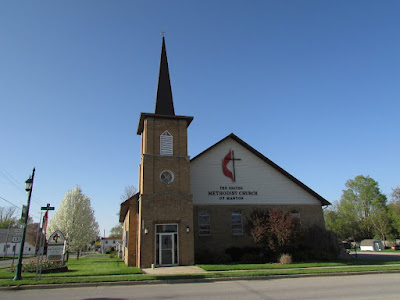The plan, called ‘regionalization,’ must now go before each region, called an annual conference, for ratification by the end of 2025.
Also see: United Methodists endorse change that could give regions more say on LGBTQ and other issuesGeneral Conference gives regionalization green light
In what outgoing Council of Bishops President Thomas J. Bickerton called “a historic day for our church,” delegates voted 586 to 164 in favor of a constitutional amendment that aims to put The United Methodist Church’s different geographic regions on equal footing. The amendment now moves to annual conference voters for potential ratification. Earlier in the morning plenary, delegates approved four other Worldwide Regionalization petitions on the consent calendar.
United Methodist Church votes to allow Eurasian churches to leave denomination
Delegates at the United Methodist Church General Conference voted to allow a regional body based in Eastern Europe to disaffiliate from the denomination over theological issues. At the churchwide legislative meeting in Charlotte, North Carolina, delegates voted on Thursday to approve Petition 21103 in a tally of 672 ayes to 67 nays, thus giving the Eurasian Episcopal Area, which has four annual conferences, autonomy.
The plenary session on Day 3 of General Conference produced two historic moments: the passage of a constitutional amendment that aims to put The United Methodist Church’s different geographic regions on equal footing and the approval of four Eurasia conferences’ official departure from the denomination. Bishop Eduard Khegay, episcopal leader of the Eurasia Area, gave a moving farewell speech following the passage of a petition that will enable four Eurasian annual conferences to become autonomous. He expressed gratitude to the denomination, using the phrase for “thank you” in Russian: “Bolshoe spasibo.”
The rise of the US evangelical right
Evangelical Christian churches in the US are a very important feature of American life and have had a great influence on the world evangelical community. They make up a large part of the Christian population of the US as well as the overall population. More on that later, because the situation is fluid. Their impact on culture, communities and individual lives is difficult to exaggerate. However, it is their involvement with politics which has increasingly gained attention. Their close association with the Republican Party is well known but their support for Donald Trump has become a defining feature since 2016.
We’re on a mission from God? Why America needs the church, not Christian nationalism
While “the shift to secularity,” as Charles Taylor argues, is characterized by a “society … in which (belief in God) is understood to be one option among others, and frequently not the easiest to embrace,” the shift to secularity does not preclude civil religion. As I note in Serpents and Doves, civil religion constructs or borrows partial theological claims as “a tool of the state to be used for the state’s ends.” The religious commitments of citizens are tolerable so long as they support the authority of the state. They cannot subvert the giving of the state’s legitimacy. Civil religion is troublesome because the state has no vested interest in encouraging citizens to cultivate a stronger allegiance to one’s religious convictions than one has for the state.
When All Hell Breaks Loose
It’s been 25 years since the Columbine massacre. It wasn’t the first school shooting in America, but the shocking scope and sheer evil of it made it the measuring stick by which all future shootings would be gauged. It also radically changed my life. Here’s why....
9 Things to Remember in a Church Crisis
In 20 years of strategic communications for clients ranging from Fortune 100 corporations and business startups to global Christian ministries and churches, I have learned a lot about how church leaders can be proactive when crisis strikes their ministry. To hear the details of what I’ve learned, you could listen to the recent podcast interview I did with NewChurches.com, but in this space I’d like to share a big-picture overview of several key factors in church crisis communications.

No comments:
Post a Comment